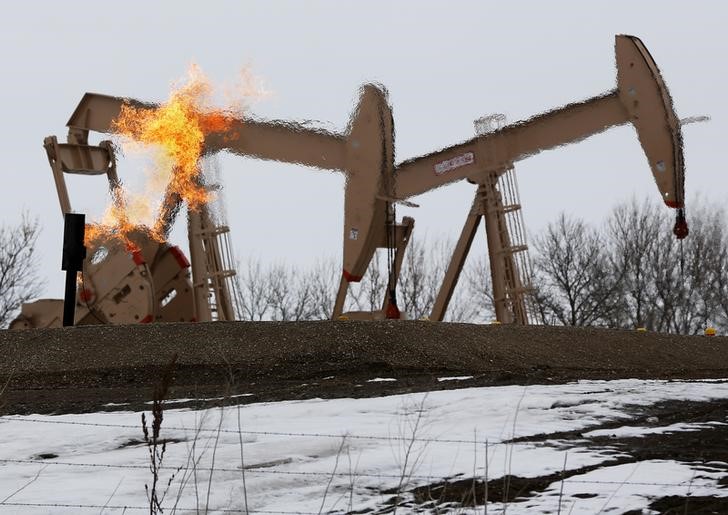
Investing.com– Oil prices settled lower Wednesday, as an unexpected build in U.S. stockpiles and signs that the Federal Reserve is set to keep rates higher for longer than previously expected weighed on sentiment.
At 14:30 ET (17:30 GMT), fell 3.4% to $83.44 a barrel, while fell 3.6% to settle at $79 a barrel,.
U.S. inventory build, strong output weighs
Data from the , showed U.S. inventories for the week ended Apr. 26, jumped by 7.3M barrels, confounding expectations for a draw of 2.3M barrels.
The data suggest that oil supplies were not as tight as initially expected in the world’s biggest fuel consumer.
This notion was reinforced by separate data showing U.S. domestic crude output rose to 13.15 million barrels per day in February from 12.58 million barrels in January, its biggest jump since October. The rise also saw U.S. production come back in sight of record highs.
This spurred doubts over just how tight global crude markets would be in the coming months, given that U.S. output remains robust and the country’s oil markets remain well supplied.
Fed keeps rates steady, signals higher for longer
The Federal Reserve left interest rates unchanged within a 5.25% to 5.5% range, and signaled that rates could likely remain higher for longer than previously expected, but kept the rate hikes off the table.
“it is unlikely that next policy rate move would be a hike,” Fed chairman Jerome Powell said Wednesday, though acknowledged that progress on inflation had stalled in recent months.
remove ads
.
Expectations of higher-for-longer U.S. interest rates saw the dollar rise sharply this week, which also weighed on oil prices, with prolonged exposure to elevated interest rates likely to weigh on economic activity by the world’s largest consumer.
Middle East peace talks
A potential ceasefire between Israel and Hamas could also further downplay expectations of tighter markets, as it would lower the risks of supply disruptions in the key oil-rich Middle East.
Expectations that a ceasefire agreement between Israel and Hamas could be in sight have grown following a renewed push led by Egypt.
“The geopolitical risk premium continues to fade as tensions between Israel and Iran have eased. There are also some hopes for a potential ceasefire between Israel and Hamas,” said analysts at ING, in a note.
(Peter Nurse, Ambar Warrick contributed to this article.)

